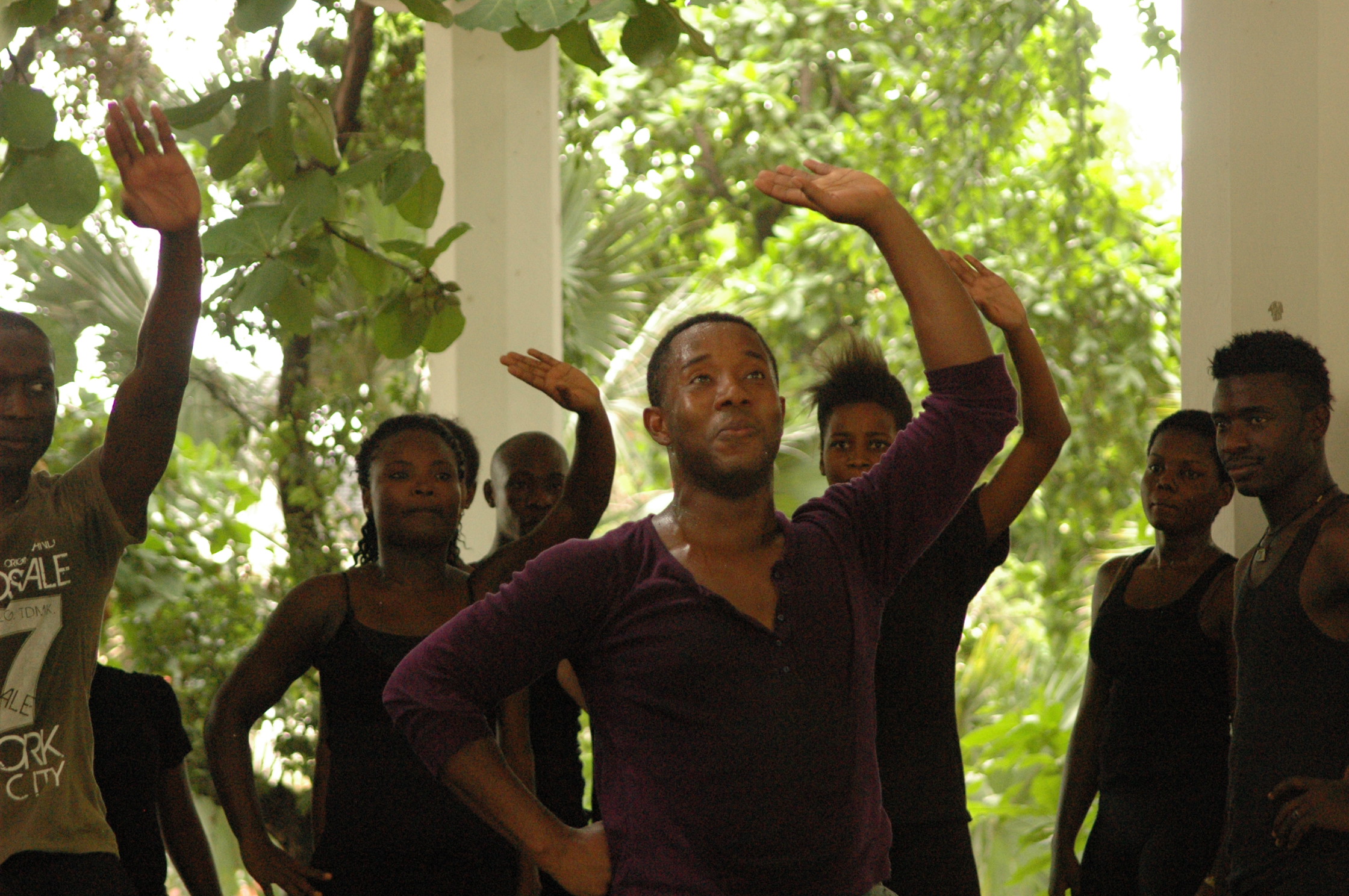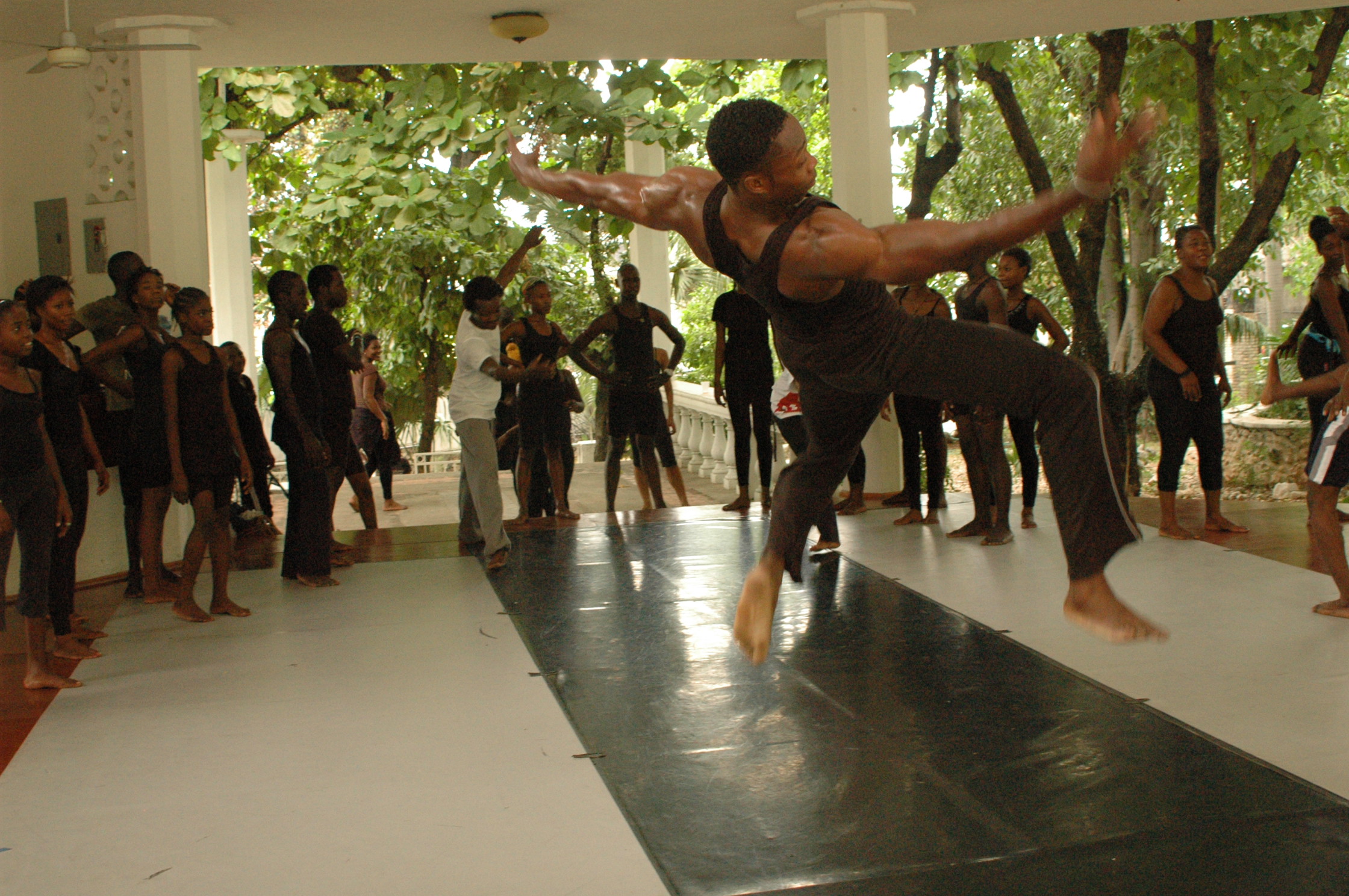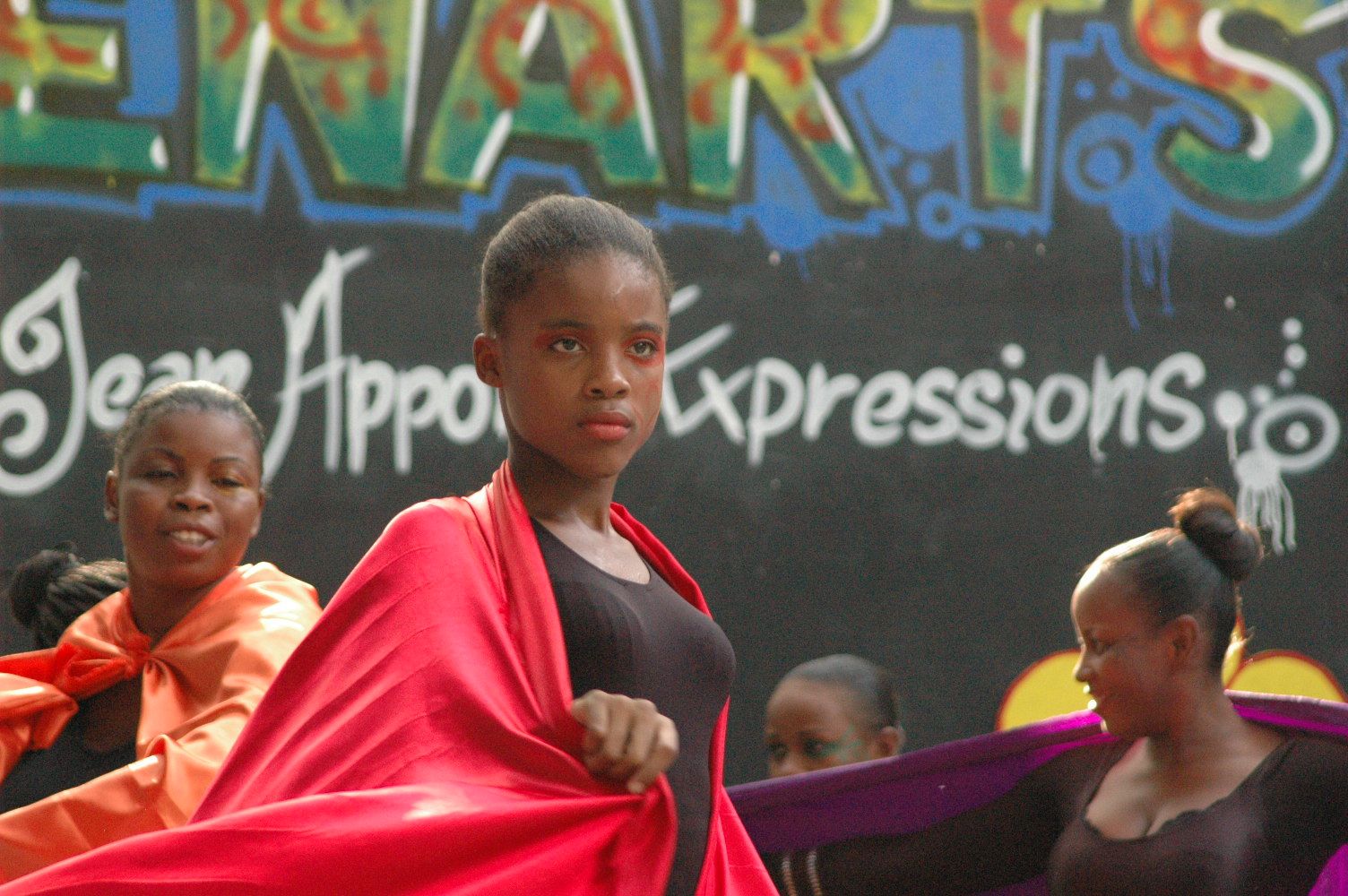Strength and grace is something that is recognized when you see performers like Misty Copeland or anyone from an Alvin Ailey program dance across the stage. Unknowingly, you wouldn’t be able to tell of any suffering or pain these performers have been through, but you can sense their dedication – their passion – of giving their all to their performance.
Growing up in a Haitian household, wanting to play sports was always a hobby. It was something that I knew I would never pursue full-time, because what was unsaid but known is that there’s no way that sports would pay bills, nor would I make it into any big-time league.
When I spoke with Jean, creator of Dance Haiti!, his story was similar to mine. His family emphasized the importance of getting an education in order to become a doctor or a lawyer, and focusing on books was the only way to make a living.

Jean was first inspired to pursue dance while living in Haiti after seeing an African-American woman on TV teach Haitian folklore dance. He remembers her being this beautiful woman; difficult to understand because of her accent, but so in awe of her presence that he would watch her on TV every Sunday morning.
At the time, his parents were very against watching it because they didn’t want him to follow dance at all. “It’s funny because they wanted me to go to Church every Sunday, not be in front of a TV and repeatedly mentioned that I need to go to medical school or become a pilot. Never a dancer.” Although many of his family members were very artistic, singers and dancers mainly, they didn’t want him to follow this path of artistry.
But when he saw this woman at a very early young age he was inspired by her grace. He started dancing around the age of 12 when a ballet school visited the school where he was studying in Haiti, offering scholarships to young boys and girls who want to pursue dance.
“When that program came to my school, I was the only boy who pretty much raised my hand and said yes – I would really like to audition. All the other kids kind of looked at me funny – I didn’t understand that dance was taboo for girls only, but I knew this is what I wanted to do.”
During the time Jean started dancing, Haiti was going through political turmoil. President Aristide was elected on January 6th, 1991 and five days later, Jean’s father, who was an undercover narcotics investigator, was killed while walking in the streets of Port-au-Prince. Nothing can really compare to politics in Haiti, but this would be as if Clinton were elected, and all of Trump supporters were roaming the streets of D.C. with machetes, killing innocent bystanders out of frustration. To say the streets in Haiti were unsafe at the time would be an understatement. At 14 years old, Jean had lost his father and was the man of the house.
For six months after his father was murdered, Jean didn’t remember feeling anything. No sense of taste or smell, “I didn’t have any kind of nerve working in my body” just shock from the trauma.
Jean had a lot of support during this difficult time, including an influential dancer named Viviane Gauthier, who helped him understand that although he didn’t have a therapist, dance would be incredibly powerful to get him through this time. And although he missed his father a lot, he wasn’t there anymore to delay him from dancing.
Between 1991 and 1993, Jean and his family went into hiding because his family was being targeted. His mother had already left Haiti to live in Boston, and the rest of the family split up. For months on end, he didn’t see his other two siblings, and stayed with his grandmother and aunts. He felt that he now had to be the man of the house, and had to be strong for the family. Despite the tension throughout the country, he would still step out to dance.
“Every time I danced, I felt stronger, and that I could heal myself. I didn’t voice this to my family because they would get angry that I even left the house. My grandmother and aunts would call my mother in Boston, saying that I keep walking out in the streets knowing it’s unsafe because people were trying to kill us, kill our family. Dancing was the only way I could keep on breathing because I didn’t know any other outlet for me to vent.”
His mother ended up getting the family out of Haiti in 1993 and this is when Jean’s dancing dreams became a reality. The high school he attended in Boston had a strong dance program, and although his mother was still against him pursuing this passion, he never backed away from pursuing his dream.
This dance program gave him the opportunity to audition for Alvin Ailey Dance Company where he later received a scholarship to attend the school in New York City. It wasn’t until his dance teachers kept insisting to his mother that he should continue this path that his mother let her guard down and acknowledged that this was her son’s calling.
At this point in his career, is when he felt the most inspired and his mother began supporting him which helped propel him to the dance teacher that he is today. When Jean finished his degree from Alvin Ailey, he began touring with international dance companies and started working on his own project, mixing Haitian folklore with American and European cultural influences. The importance of keeping Haitian traditions alive sparked the launch of Jean Appolon Expressions in 2001.
This was the same year that he visited Haiti for the first time since he had left in 1993, and he visited the dance school where he used to perform. Jean was filled with nostalgia, despair, and hope. “When I went back, I saw that a lot of the kids didn’t continue to dance in Haiti because I think dance became more of a money-making business than providing art and expression for others. So mostly, if you wanted to do ballet training, you’d have to have a lot of U.S. money in your pocket. And most of Haitian kids are incredibly poor and they couldn’t pay for those type of fees to be part of the programs.”
Dance wasn’t as profound as it was in the 80s, and he wanted to do something about it; making sure the tradition of Haitian dance still remained alive. And after traveling to Haiti each year to conduct dance workshops, he started Dance Haiti! a youth summer dance program in 2006.
Incorporating movement has always been a part of Jean’s lifestyle; it was the only thing he knew to do to help overcome the trauma of living in an unstable country, filled with political tension and what appears to be a never ending cycle of despair, especially after the 2010 earthquake.
It’s as if Haiti can’t ever catch a break, but Jean has hope.
The summer after the earthquake, Jean went to Haiti to teach the summer program and was amazed at the turnout in the program, despite having 17 members killed during the earthquake. “When I went to teach that summer, I saw many people standing in line, waiting for food, some of them with missing legs, missing arms outside of the classroom where the program was held. As soon as we started playing the drums, everybody forgot that they were in that line – they left the line and they came right in front of the school where we were teaching just sitting there listening to the music and watching the kids dance and take the class. To me, this really touched my heart deeply and this is the reason why I want to continue working in Haiti because I feel like I am really able to touch lives and tell these people there is a hope behind all of their pain and suffering. There is hope.”

Through Haitian folklore dance, Jean asserts that there can be hope if the youth are educated on the traditions of their country. I asked Jean what has kept him motivated over the past 10 years since starting Dance Haiti!
“I know there are a lot of kids just like myself who lost a parent and who went through so many headaches in Haiti. I know there are some kids who have been through the worst, and I see them when I go to teach. Being able to really talk to those kids for the 20 days of the program and be able to sit down and see them smile again. That’s pretty much for me, the only thing I feel in my heart as success when it comes to doing this program in Haiti. This is what really keeps me going. This is what I rely on to motivate me.”
Although Jean didn’t pursue what his family wanted him to do, he knew in his heart that dance would be his ticket to freedom. Freedom to choose and be whoever he wanted, and to create opportunities for others to do the same.
His mission is to continue to teach dance in Haiti, and he doesn’t want to be the only one teaching these types of programs. “I would like to be able to teach other kids and hopefully in 5, 10 more years, they can become teachers themselves and we can have more people teaching other kids in Haiti.”
Since launching this program in 2006, Jean has had many students open their own studios in Haiti. There are kids who have opened up their own girls-only and boys-only programs, and his hope is that this tradition carries across generations to come.
To keep this tradition going, and to support Dance Haiti!, visit their website.
